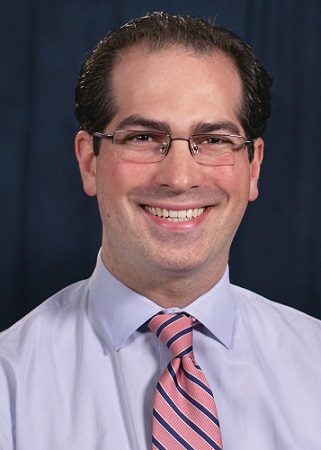Dr. Cheston B. Cunha leads the effort against antibiotic-resistant infections at Rhode Island and The Miriam hospitals. Both facilities were recently designated as Antimicrobial Stewardship Centers of Excellence by the Infectious Diseases Society of America.
Cunha, who is medical director of both hospitals’ antimicrobial stewardship programs, as well as an associate professor of medicine at the Warren Alpert Medical School of Brown University, discusses how Rhode Island and The Miriam hospitals are guarding against the overuse of antibiotics.
PBN: How urgent of an issue is antimicrobial resistance?
CUNHA: The Centers for Disease Control [and Prevention] estimates that more than 2.8 million antibiotic-resistant infections occur in the United States each year, leading to 35,000 deaths. Antibiotic resistance makes it significantly harder to treat individual patients who have infections and, if left unchecked, may lead to infections with no effective antibiotic options. Antimicrobial resistance is a critical public health issue.
PBN: How does achieving this designation translate to the care that individual patients receive at Rhode Island and The Miriam hospitals?
CUNHA: The “Center of Excellence” designation reflects the hard work that Lifespan and its Antimicrobial Stewardship Program have been undertaking to improve antibiotic use. Our program reviews a patient’s antibiotic regimen and their laboratory data to determine the optimal antibiotic for their condition.
Also, the medical staff regularly reaches out to our team for assistance with selecting the best antibiotic for a specific patient. This tailored approach ensures that the best therapy is given to an individual.
One of our most important roles is preventing the use of antibiotics in patients who do not need them, thus reducing their risk of acquiring antibiotic-resistant infections.
PBN: What are some of the things that each hospital has done to cut down on the use of antibiotics?
CUNHA: Rhode Island Hospital and The Miriam Hospital have hired pharmacists with dedicated training in infectious diseases and antimicrobial stewardship as part of our Antimicrobial Stewardship Program. These specialized pharmacists are instrumental in improving antimicrobial use in both the inpatient and outpatient settings.
Our educational efforts have focused on helping the pharmacy and medical staff better understand when certain antibiotics are needed and when they are not. We have emphasized utilizing shorter durations of therapy, as there is growing evidence that they may be just as effective as longer ones.
PBN: How big of a change is this from how antibiotics have been prescribed and used over the past decades?
CUNHA: The changes are substantial and have resulted in a significant improvement over the way antibiotics have traditionally been used. When it comes to duration of treatment, the idea that “shorter is better” – without compromising the effectiveness of the therapy – results in fewer side effects, shorter hospital stays, less antibiotic resistance and reduced costs for the patient.
Another big change is our active utilization of rapid diagnostic tests on patients to determine the best course of antibiotics quickly and effectively. We also try to use antibiotics that by their very nature have a lower chance of developing resistance or causing side effects.
PBN: Are the Miriam and Rhode Island hospitals researching how to help patients who develop antimicrobial resistance?
CUNHA: Yes. Lifespan obtained a five-year, $9.4 million grant from the National Institutes of Health to establish its Center for Biomedical Research Excellence for Antimicrobial Resistance and Therapeutic Discovery. The funding has allowed researchers at Rhode Island Hospital and The Miriam Hospital to delve into the causes of antibiotic resistance and identify potential new drugs to treat these infections.
Elizabeth Graham is a PBN contributing writer.













